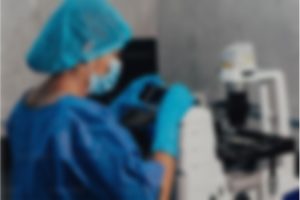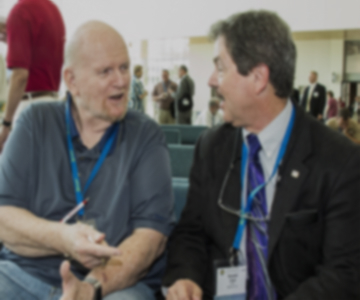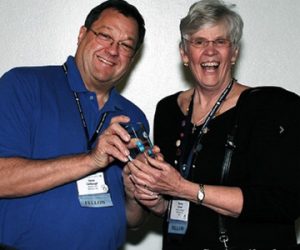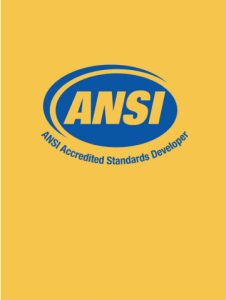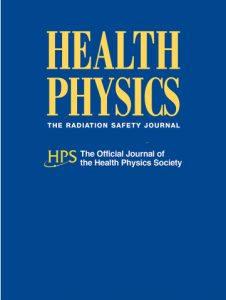1928 — 2020
by Armin Ansari, Michael Lemon, Susan T. Masih, and John D. Zimbrick
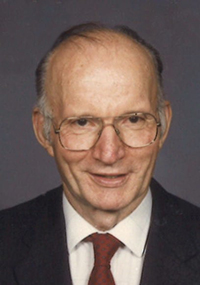
Dr. Benjamin S. Friesen, professor emeritus of radiation biophysics at the University of Kansas (KU) and a Health Physics Society (HPS) fellow, died on 13 April 2020. A gifted teacher and mentor, and a friendly, supportive colleague, he was a role model for many of his students who entered fields not limited to health or medical physics. Medical doctors, basic research scientists, university presidents, and regulators as well as occupational safety professionals use the skills honed in his classes. Dr. Friesen's career extended over a significant portion of the development and establishment of the health physics profession and included research on DNA repair mechanisms, medical physics, industrial and nuclear reactor safety, and basic operational radiation safety in an academic environment.
Ben was born on 24 March 1928 in Garden City, Kansas, in the heart of the Dust Bowl, during the Great Depression. He was the first from his family to attend high school outside of the German Mennonite community in Meade, Kansas. He received an undergraduate degree in physics from KU and was promptly recruited into a new degree track by Dr. Frank Hoecker (1903–1987). Hoecker, a former Manhattan Project "health physicist" (and an HPS member), was instrumental in the establishment of health physics as an academic discipline. He founded KU's program, and Ben, as one of the earliest graduate students, was soon counting alpha tracks in bone slices from radium dial painters and studying x-ray energy absorption in bones. Ben received his master's degree at KU in 1954 and completed his PhD at Iowa State University where he did his research with Dr. Robert Sinsheimer (1920–2017), the internationally acclaimed biologist and a pioneer in a new field of biology that became known as molecular biology. Ben's work was on the structure of Tobacco Mosaic Virus RNA (the first viral pathogen discovered). He continued his work with viruses as a postdoctoral fellow at Berkeley with renowned cancer virologist Dr. Henry Rubin (1926–2020), studying UV sensitivity of avian leukosis virus.
Ben returned to KU in 1960 as a young assistant professor to begin his 45-year career on the KU faculty. During his long and distinguished tenure, he taught 17 different courses in the radiation biophysics program. His research interests turned to studies of radiation-induced genetic damage in bacteria and how this damage could be modified by changes in the nutrients (such as glucose) in the growth medium. His background in physics and research experience in cutting-edge molecular biology at the time was the perfect mix for training students in the multidisciplinary radiation biophysics program. He enjoyed sharing the process of discovery with students and colleagues. He was famous for exams that included carefully constructed Martian virus data to challenge his student's analytical thinking, and he always emphasized to them not to be shackled by dogma, rather, allow verifiable data to direct their thinking. Many of his students say this advice has remained with them to this day and has served them well.
Among his accomplishments during his long and productive career at KU, he helped commission the university's 10 kW Bendix research and training nuclear reactor, which was instrumental in education of undergraduate and graduate students, and then, as university radiation safety officer (RSO), he helped decommission it after 40 years of productive use.
He developed and taught courses in the physics of diagnostic radiology and radiation biology for radiology residents. As his interest and focus shifted toward radiation safety, he provided radiation safety training for industries and hospitals, performed radiation safety surveys and quality assurance testing of diagnostic x-ray units, assisted in obtaining licenses in nuclear medicine, provided shielding specifications for x-ray installations, and made recommendations concerning radiation safety. He retired in 2005 as KU's director of environmental health & safety, setting an example for future RSOs at KU in teaching, prudent practice, making right choices in difficult situations, and service to faculty.
Ben once commented to a fellow KU faculty member that "of all the honors I have received, I value most highly my appointment in 2001 as health physics fellow in the Health Physics Society." His family regarded this distinction as induction in "the hall of fame."
Aside from his career, two of his passions in life were his faith and his music. He taught Sunday school at the First Southern Baptist Church in Lawrence, twice teaching the largest classes the church has ever seen. He also enjoyed singing and playing guitar at bedtime for his grandchildren.
Ben is survived by his wife of 67 years, Joyce, their four children, and six grandchildren. He will be remembered fondly by all health physicists, medical physicists, and radiation scientists who came to know him, learned from him, and are fortunate to have had someone like Benjamin S. Friesen as mentor, colleague, or friend in their lives.

